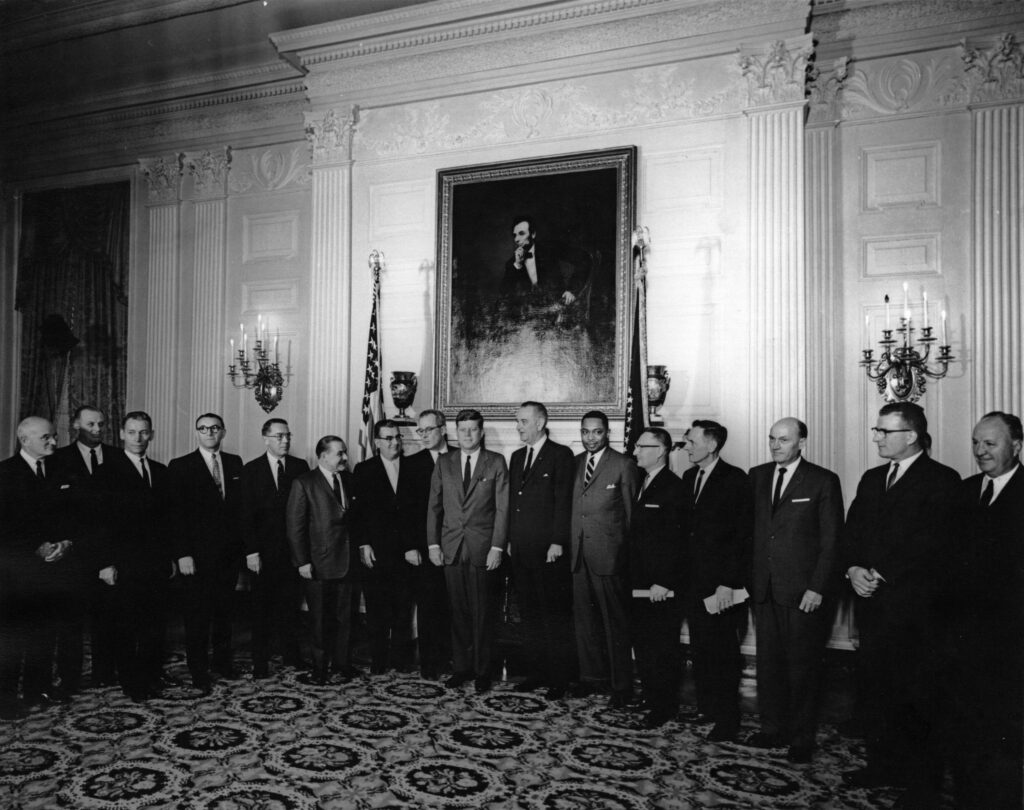By Jennifer Marciello, Archivist
The Kennedy Library is pleased to announce the opening of the James Joseph Kruse Personal Papers.
The papers of James Joseph Kruse consist of personal and professional papers relating to his work on the President’s Committee on Equal Employment Opportunity from 1961 to 1963, specifically with his work on the Plans for Progress program.
Joseph Kruse was born on December 5, 1932. He served in the U.S. Army from 1953 to 1955. Kruse received a Bachelor of Science degree in Education from the University of Florida in 1957, a Master of Science degree in Administration from Florida State University in 1958, and graduated from the Advanced Management Program of the Harvard Graduate School of Business and the Aspen Institute for Humanistic Studies. After working on the Kennedy-Johnson Presidential Campaign in 1960, Kruse relocated to Washington, D.C. in January 1961 to implement the Plans for Progress program as part of the President’s Committee on Equal Employment Opportunity, where he stayed until 1963. Following his work on the Committee, Kruse accepted a position at Textron, Inc., where he remained until 1984.
The Plans for Progress program was developed as part of the President’s Committee on Equal Employment Opportunity, which was established in 1961. The same year, the Lockheed-Georgia Company received a number of complaints of discrimination that were processed through the Committee. This became the genesis of the Plans for Progress program, which was an approach to enlist the aid of industrial firms in attempting to find a solution to the problem of equal employment opportunity. The purpose of the program was to obtain voluntary agreements against pre- and post-employment discrimination entered into by private employers with the U.S. Government. On May 25, 1961 Lockheed Aircraft Corporation signed the first “Plan for Progress” at the White House and by July 12, 1961 an additional eight companies had signed on; the subcommittee was officially established in August 1961. A major portion of the program included statistical analysis and employment statistics by both industry and the federal government. By June of 1962 the program consisted of 85 participating firms which included an employment population of 4,400,000 persons, and by January of 1963 the program had grown to 104 participants.

AR7664-I Signing ceremony for the Plans for Progress; officials from twenty companies signed equal opportunity employment agreements as part of the program. State Dining Room, White House, Washington, D.C.
The collection is arranged into one series: Series 1. Plans for Progress Files, 1961-2001, which contains general office files, correspondence, affidavits of employee complaints, memorandums, subject files, questionnaires, statistics, publications and reports. Of note, the collection also contains a series of affidavits relating to the 1961 discrimination complaint brought against the Lockheed-Georgia Company by the NAACP.
All are welcome to visit the Library to work with our collections, and you can make an appointment by contacting an archivist at Kennedy.Library@nara.gov.
